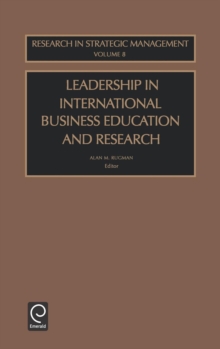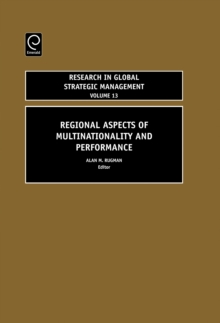
Regional Economic Integration PDF
Edited by Professor Michele Fratianni
Part of the Research in Global Strategic Management series
Description
Is the world globalized as so many pundits claim? The facts say otherwise. Consumption, for example, has a strong domestic bias.
Distance and borders are two important reasons for this bias and are a powerful deterrent to globalization.
Also, multinational corporations the organizations that best symbolize the concept of globalization do not have a global reach, but rather focus their activities within an area surrounding the home market.
These facts suggest that regionalization and not globalization is the appropriate characterization of today's economic environment.
This volume explores the drivers of cross-border trade and the forces underlying the expansion of the border from the nation to the regional trade area.
The findings of this research cast some doubts on the practicality of striving for a more globalized trade system through costly and time-consuming trade rounds populated by a myriad of players with their agendas and conflicts?
Would it not be better to let the world fully play out the regional option before implementing a more global strategy?
It provides international coverage of global strategic management.
It discusses multi-national corporation and whether their growth strategy should be regional v. global. It also addresses regional trade situations (i.e., NAFTA, European Union, and Mercosur).
Information
-
Download - Immediately Available
- Format:PDF
- Pages:300 pages
- Publisher:Emerald Publishing Limited
- Publication Date:15/06/2006
- Category:
- ISBN:9781849504027
Information
-
Download - Immediately Available
- Format:PDF
- Pages:300 pages
- Publisher:Emerald Publishing Limited
- Publication Date:15/06/2006
- Category:
- ISBN:9781849504027










